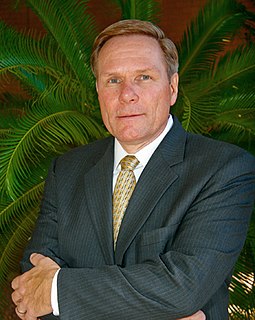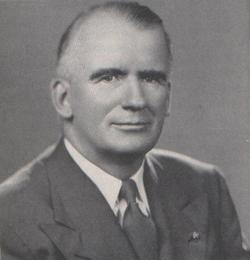A Quote by Baba Kalyani
Indians have very good engineering capabilities, and that is why, if an industry focuses on innovation, you will have a far greater chance of success, rather than the model which is based on just being a production machine.
Related Quotes
If you look across the economy, if you have multiple players in an industry, you have more customization, more innovation, greater choice for consumers. The more you have consolidation, the less likely you are to invest in innovation. It becomes all about driving down cost and mass production. And that's not good for innovation in an industry.
Books proliferate, and occasionally sell in very large numbers, which claim to have found the rule, or small set of rules, which will guarantee business success. But business is far too complicated, far too difficult an activity to distil into a few simple commands ... It is failure rather than success which is the distinguishing feature of corporate life.
But innovation is more than a new method. It is a new view of the universe, as one of risk rather than of chance or of certainty. It is a new view of man's role in the universe; he creates order by taking risks. And this means that innovation, rather than being an assertion of human power, is an acceptance of human responsibility.
Through developing trusting and respectful relationships with the boys in our lives, we can help boys to value and acknowledge their relational capabilities, which they may otherwise learn to discount or overlook. We can also offer and model for them definitions of maturity, masculinity, health and success that will enable them to remain grounded in their self-knowledge (e.g. as they encounter societal pressures to conform to group and cultural norms), and to form relationships that will sustain rather than constrain them.
To be a good human being is to have a kind of openness to the world, an ability to trust uncertain things beyond your own control, that can lead you to be shattered in very extreme circumstances for which you were not to blame. That says something very important about the condition of the ethical life: that it is based on a trust in the uncertain and on a willingness to be exposed; it’s based on being more like a plant than like a jewel, something rather fragile, but whose very particular beauty is inseparable from that fragility.
The man of frank and strong prejudices, far from being a political and social menace and an obstacle in the path of progress, is often a benign character and helpful citizen. The chance is far greater, furthermore, that he will be more creative than the man who can never come to more than a few gingerly held conclusions, or who thinks that all ideas should be received with equal hospitality. There is such a thing as being so broad you are flat.
I shall argue that it is the capital stock from which we derive satisfaction, not from the additions to it (production) or the subtractions from it (consumption): that consumption, far from being a desideratum, is a deplorable property of the capital stock which necessitates the equally deplorable activity of production: and that the objective of economic policy should not be to maximize consumption or production, but rather to minimize it, i.e. to enable us to maintain our capital stock with as little consumption or production as possible.
Although humans today remain more capable than machines for many tasks, by 2030 machine capabilities will have increased to the point that humans will have become the weakest component in a wide array of systems and processes. Humans and machines will need to become far more closely coupled, through improved human-machine interfaces and by direct augmentation of human performance
I have a feeling-as compelling as a religious conviction-that if industry will constantly pass on to the worker and the customer all the savings of labor-saving machinery and invention, rather than siphon them off into the pools of watered securities, it will by that process keep distribution and production in balance and go as far toward Utopia as our poor human natures will go or be driven.
An institution which is financed by a budget - or which enjoys a monopoly which the customer cannot escape - is rewarded for what it deserves rather than what it earns. It is paid for 'good intentions' and 'programs'. It is paid for not alienating important constituents rather than satisfying any one group. It is misdirected by the way it is being paid into defining performance and results as what will produce the budget rather than as what will produce contribution.
The capabilities (intellectual and material) of contemporary society are immeasurably greater than ever before - which means that the scope of society's domination over the individual is immeasurably greater than ever before. Our society distinguishes itself by conquering the centrifugal social forces with Technology rather than Terror, on the dual basis of an overwhelming efficiency and an increasing standard of living.

































